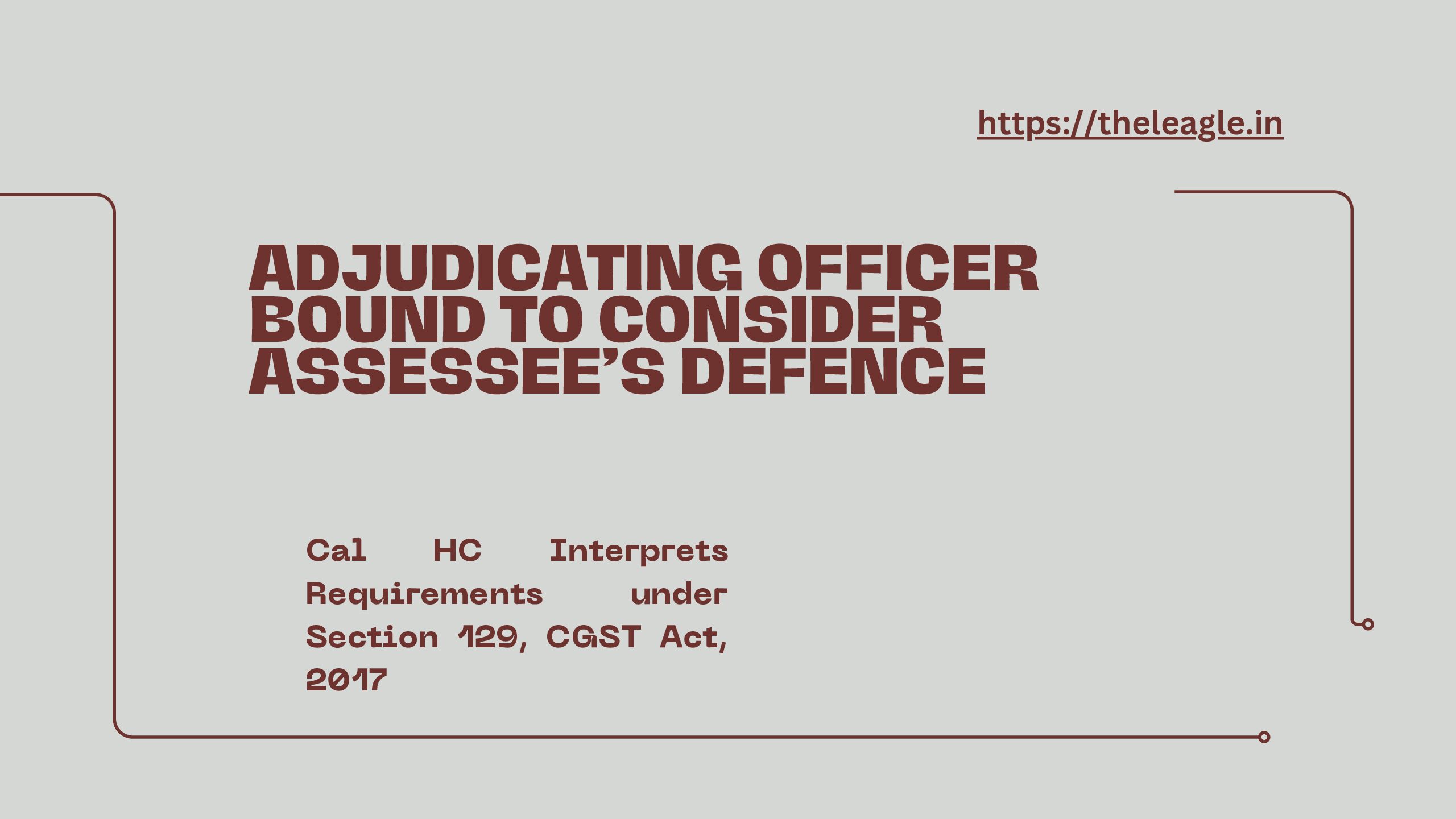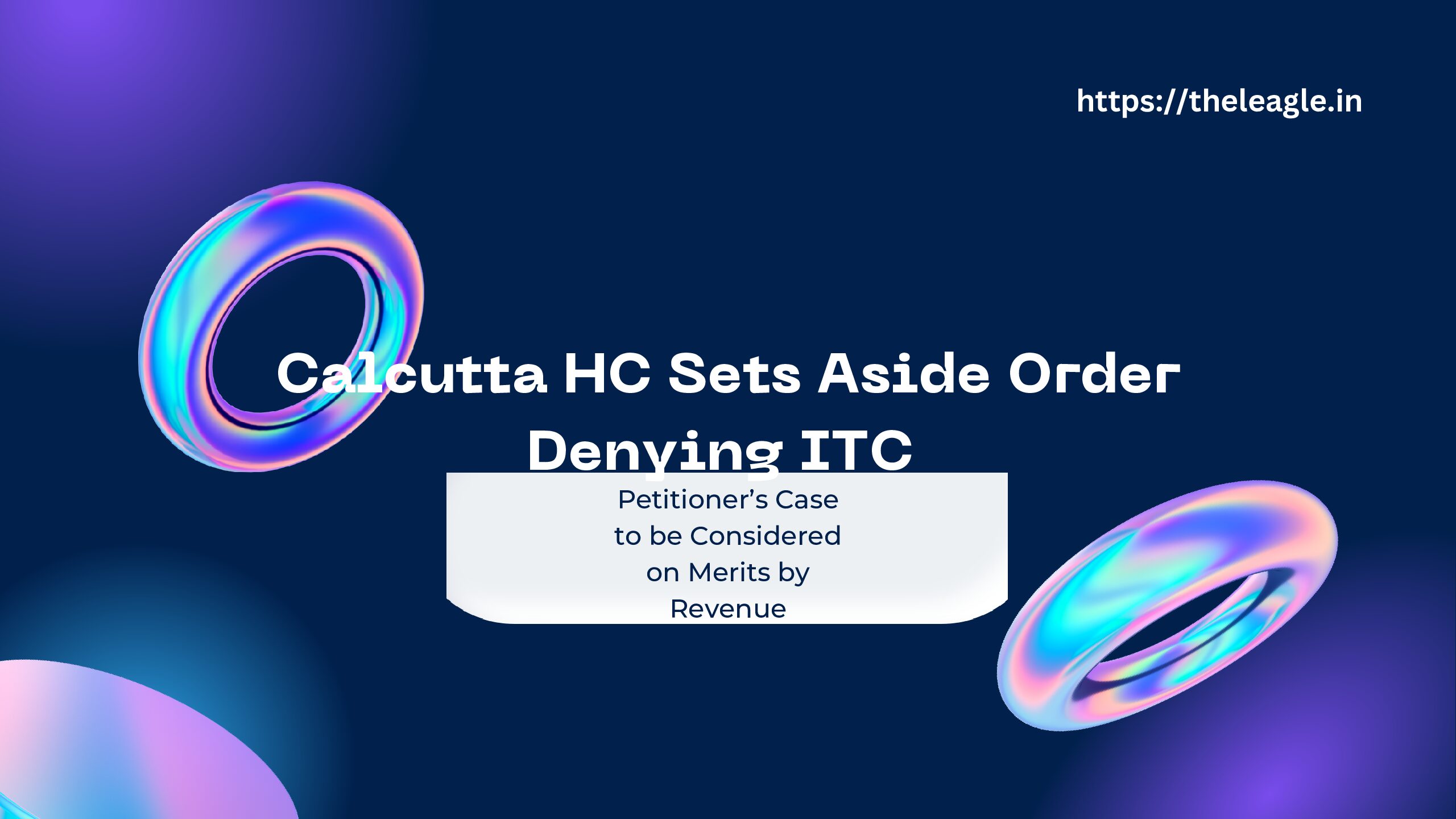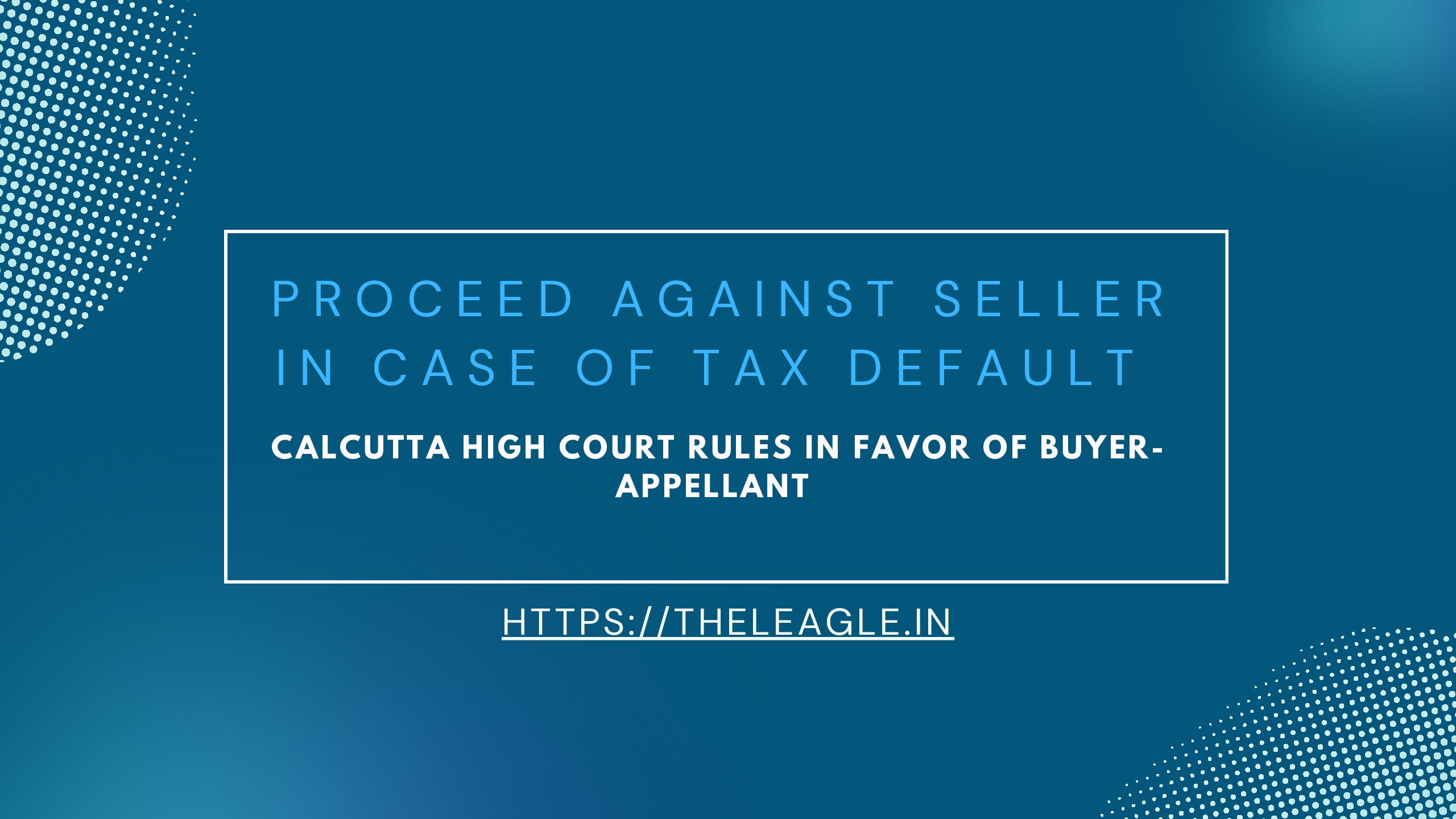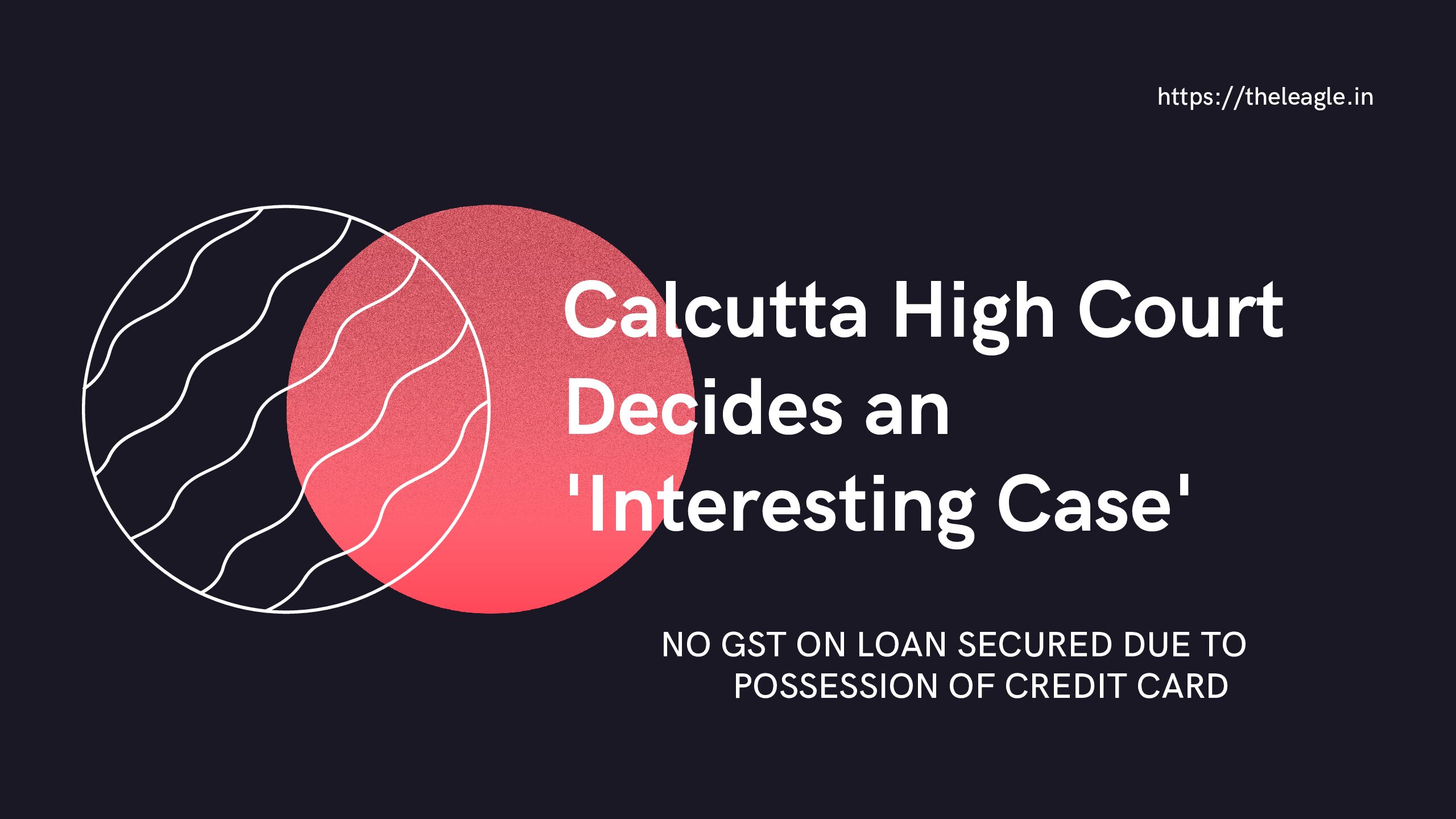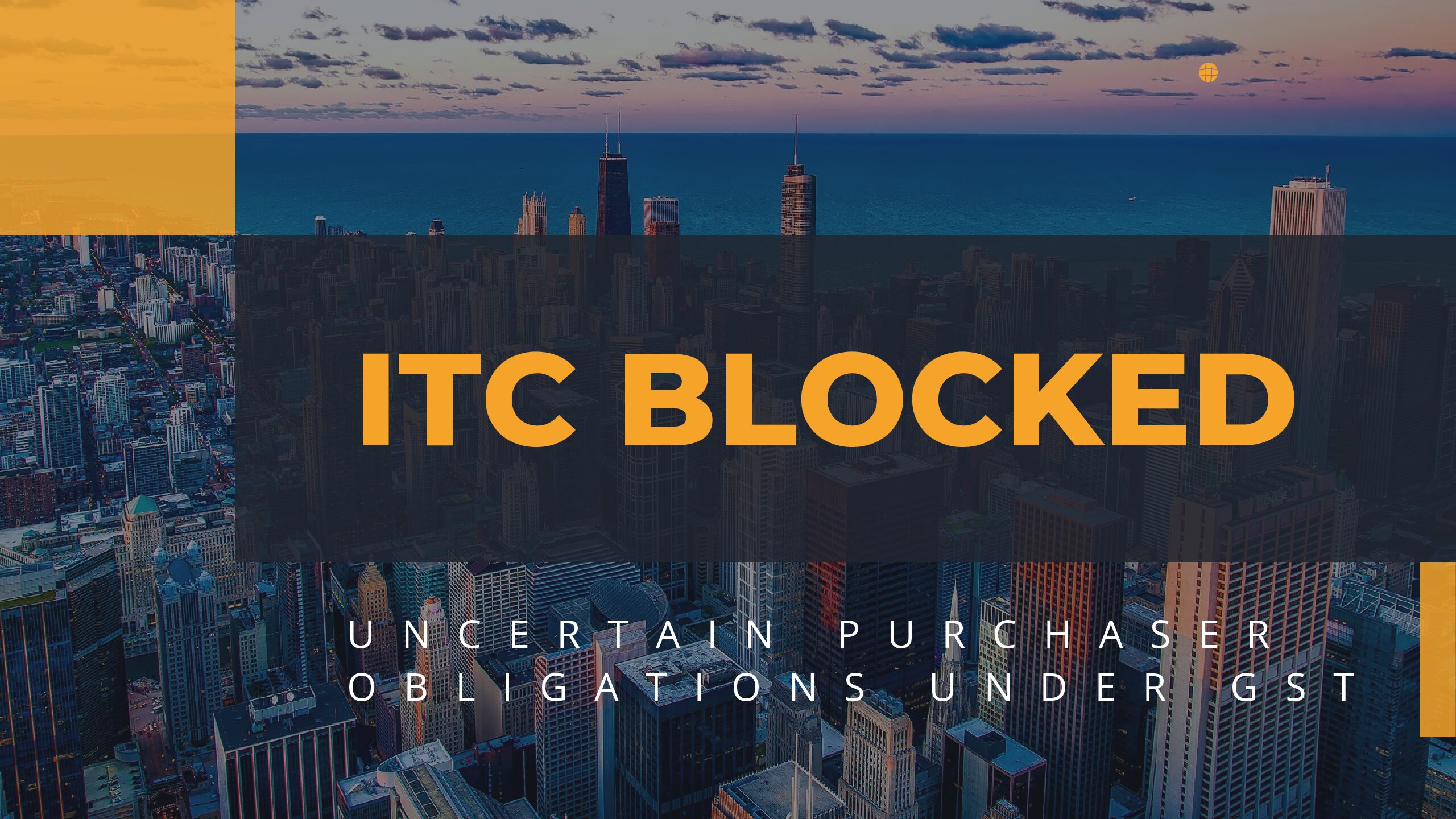The Calcutta High Court recently decided the question whether an assessee filing its tax returns after the stipulated time – prescribed under Section 16(4), CGST Act, 2017 – is entitled to claim ITC. The High Court answered in the negative and upheld the GST Department’s order denying ITC to the assessee on the ground of belated filing of returns.
Facts and Arguments
Assessee in the impugned case submitted the returns in GSTR-3B for the period from November 2018 to March 2019 on 20.10.2019 which was beyond the due date of submission, i.e., September 2019. The assessee was asked to show cause as to why its claim for ITC should not be denied since the returns were filed after the due date. On assessee’s failure to respond, the GST Department initiated recovery proceedings and debited the requisite amount from the cash ledger balances of the assessee. The assessee challenged the recovery actions before the Calcutta High Court.
To begin with, it is important to briefly note that Section 16, CGST Act, 2017 prescribes the eligibility and conditions for an assessee to claim ITC. Section 16(2) requires fulfilment of certain conditions such as possession of tax invoices, receipt of goods or services or both while Section 16(4) prescribes the time within which an assessee is required to file returns to be eligible to claim ITC. And, another aspect that would become relevat in the subsequent discussion, Section 16(2) begins with non-obstante clause, ‘Notwithstanding anything contained in this section’ while a similar clause is absent in Section 16(4).
The assessee’s argument was that once the conditions stipulated in Section 16(2), CGST Act, 2017 have been fulfilled by the assessee, it is entitled to the right to claim ITC. And that availing or utilizing the ITC through procedural formalities of filing returns is a matter of choice for the assessee. The assessee further argued that ITC is not claimed through returns but through books of account under Section 16(2). And that the non-obstante clause used in Section 16(2) cannot be negated by stipulating an outer time for filing returns as an additional condition for claiming ITC under Section 16(4). If an assessee is denied the right to claim ITC for failure to file returns within the time stated under Section 16(4), it would negate the non-obstante clause of Section 16(2).
The Revenue Department, on the other hand, argued that the non-obstante clause used in Section 16(2) cannot be interpreted in isolation. And that Section 16(2) and Section 16(4) were complementary provisions and not contradictory provisions. Section 16(2) prescribed the conditions necessary to avail ITC and Section 16(4) added the condition of time. Only by relying on the non-obstante clause, Section 16(2) cannot be interpreted in a manner to render Section 16(4) otiose.
Calcutta High Court Decides
The Calcutta High Court referred to various precedents decisions pronounced under GST and under VAT laws to emphasise three things:
First, in matters of taxation the legislature deserves greater latitude and courts should be circumspect before intervening in tax disputes. While the doctrine of deference to taxation statutes has a long standing and questionable traction in Indian jurisprudence, it served no immediate purpose in deciding the issue at hand.
Second, the High Court noted that a provision in a statute cannot be interpreted in isolation and there is a need to read it along with other provisions in the statute especially if the subject matter in the different provisions or different parts of the statute is similar.
Third, the High Court cited a slew of precedents to express its agreement with the view that ITC is a concession and can only be claimed as a matter of right by an assessee on fulfilling the conditions prescribed in the statute. Relying on the same, the High Court observed that:
Section 16(2) does not appear to be a provision which allows Input Tax Credit, rather Section 16(1) is the enabling provision and Section 16(2) restricts the credit which is otherwise allowed to the dealers who satisfied the condition prescribed the interpretation given by the court that the stipulation in Section 16(2) is the restrictive provision is the correct interpretation given to the said provision. (para 12)
The Calcutta High Court also relied on the Patna High Court’s recent judgment to observe that Section 16(4) did not suffer from ambiguity and an assessee’s right to claim ITC can only materialise on fulfilling the conditions prescribed under Section 16(2) as well the condition prescribed under Section 16(4), i.e., filing of returns within a stipulated time.
Conclusion
There are, in my view, two important takeaways from the impugned judgment: first, the Calcutta High Court’s view that ITC is a concession/benefit granted by the State to an assessee and it can be claimed only if the conditions prescribed in the statute are strictly followed, though the nature of ITC is not as straightforward and may require a deeper look; second, all the conditions prescribed in Section 16 need to be fulfilled to claim ITC successfully and the condition to file returns within a prescribed time cannot be understood to be as optional. Failure to adhere to the time of filing returns will rightly result in denial of ITC.

